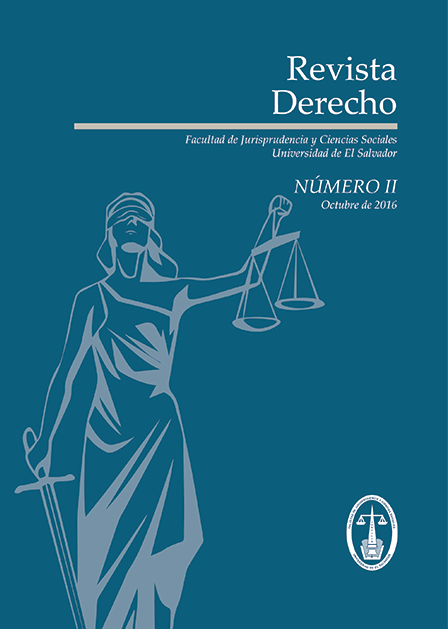The market during the war: combat trench or international strategy headquarters?
Keywords:
War, Speculation, Market, Fluctuation, Stock Exchange, Exchange MarketAbstract
Whatever war is waged on two stages: trenches and strategy headquarters. There are those suffering the combat In the trenches but they can’t decide on it; secondly, there are those who don’t suffer in the headquarters, but they decide. Then, it is worth identifying the site where the markets in the war, for better or for worse, are directly affected by any conflict that comes to war consequences. Markets tend to react in very different ways to the fighting - or to combat rumors - so studying the relationship is relevant. It will not be strange to see how a war, oil prices rise, an inflationary trend and consumer products in short supply. Of course, none of this makes sense because wars are not necessary to reflect market reality; this is exactly where the concept of economic speculation is introduced, which it makes producers and consumers to take economic decisions based on rumors without real basis. The Exchange Market will be direct subject of fluctuations caused by war speculations. Moreover, wars will be those that set the pace of evolution of the international monetary system. However, the valuation of the currency is not the only product suffering fluctuations as product of wars; stock markets also are affected by this phenomenon, making the stock exchanges of the world react promptly to any conflict that may assist them affection. Probably the parts in combat lose their young on the battlefield, lose its manufacturing base, thousands of civilians and left with consequences for decades, war being the best way for both sides to lose. Although of course, there will be always a winner by the side of the market. That’s why if someone asks “Why there are still wars?”, the answer is very simple: because they are very profitable!
Downloads
References
Vallejo Bravo, German Darío, “Calidad de vida en población desplazada por el conflicto interno en Colombia”, accedido 12 de enero de 2016. https://alhim.revues.org/3822.
Luis Heredia, “Una inflación preventiva”, accedido 12 de enero de 2016. http://www.lavoz.com.ar/temas/una-inflacion-preventiva.
Fernando Rocabado Quevedo, “El alza de precios de los alimentos y la seguridad alimentaria”, accedido 11 de enero de 2016. http://www.bvsde.paho.org/bvsacd/cd68/Alzaprecios.pdf.
Mariano Aguirre, Teresa Filesi, y Mabel González, Globalización y sistema internacional, 1a ed. (Barcelona: Icaria, 2000).
Enciclopedia Financiera, “Especulación”, accedido 11 de enero de 2016. http://www.enciclopediafinanciera.com/definicion-especulacion.html.
Comisión Europea, “Perspectivas de la evolución mundial hasta 2030 en los ámbitos de la energía, la tecnología y la política climática”, accedido 11 de enero de 2016. https://ec.europa.eu/research/energy/pdf/key_messages_es.pdf.
Joaquín Garralda Ruiz, “La cadena de valor”, 2013. http://openmultimedia.ie.edu/OpenProducts/cdv/cdv/Cadena%20de%20valor.pdf.
Fernando Ordónez, “Las diez reglas de oro del especulador bursátil”, accedido 11 de enero de 2016. http://suite101.net/article/las-diez-reglas-de-oro-del-especulador-burstil-a8534#.VpSMqbbhDIU.
Pilar Blázquez, “Así actúan los especuladores para arrasar los mercados”, accedido 11 de enero de 2016. http://www.publico.es/actualidad/actuan-especuladores-arrasar-mercados.html.
Jesús Sánchez Bermejo, Diario de un especulador, 1a ed. (Madrid, Letra Clara, 2014).
Banco Central de Reserva, “Informe de Comercio Exterior de El Salvador, enero-septiembre 2015”, accedido 12 de enero de 2016, http://www.bcr.gob.sv/bcrsite/uploaded/content/category/439486686.pdf.
Robert Carbaugh, Economía Internacional, 12a ed. (México DF, Cengage Learning, 2009).
Paul Krugman, Economía Internacional: Teoría y Política, 7a ed. (Madrid, McGraw-Hill, 2006).
Anna Castro, “La Primera Guerra Mundial: problemas monetarios”, accedido 12 de octubre de 2016. http://blogdhistoriaeconomica.blogspot.com/2009/04/la-primera-guerra-mundialproblemas.html.
Michel Lelart, El sistema monetario internacional (México DF, Acento, 1996).
Héctor Guillén Romo, Del Patrón Oro a la privatización del sistema monetario internacional, 1a ed., vol. 58, Comercio Exterior (México DF, Banco Central de México, 2008.
Fort Navarro y Martínez Ibáñez, El conflicto palestino-israelí, 1a ed. (Valencia, Diálogo, 2002).
Fondo Monetario Internacional, “Derechos Especiales de Giro”, 2015. https://www.imf.org/external/np/exr/facts/spa/sdrs.htm.
Aurelio Jiménez, “¿Qué tipos de mercados existen?”, 2013. http://www.elblogsalmon.com/conceptos-de-economia/que-tipos-de-mercados-existen
Ricardo Torres Gaitán, Teoría del comercio internacional (México DF, Siglo XXI, 1984).
Anibal José Maffeo, “La Guerra de Yom Kippur y la crisis del petróleo de 1973”, Revista de Relaciones Internacionales, (2003). http://www.iri.edu.ar/revistas/revista_dvd/revistas/R25/ri%2025%20hist%20Articulo_1.pdf.
Fernando Ossa Scaglia, El Sistema Monetario Internacional: Antecedentes Históricos, Acontecimientos Recientes y Perspectivas Futuras (Santiago de Chile, Universidad Católica de Chile, 2000).
Exordio, “Bolsas de Valores (1939-1945)”, accedido 18 de noviembre de 2015. http://www.exordio.com/1939-1945/paises/bolsa_valores.html.
Ranald Michie, The London Stock Exchange, 1a ed. (Oxford, Oxford University, 2001).
Jiménez de Francisco, Borja, “¿Cómo afectan las guerras a las bolsas?”, accedido 12 de enero de 2016. http://www.negocios.com/noticias/afectan-guerras-bolsas-11022015-2024.
Roberto Ruarte, “Las guerras y su impacto en los mercados”, accedido 12 de enero de 2016. https://latin.tradingfloor.com/articulos/las-guerras-y-su-impacto-en-los-mercados-1356847288
Armando Ramo, “La economía de las guerras”, accedido 12 de enero de 2016. http://economiaguerras.blogspot.com/.
Fernando Monreal, “Las firmas de defensa ganan 20000 millones desde los atentados de París”, accedido 19 de noviembre de 2015. http://www.eleconomista.es/mercados-cotizaciones/noticias/7158020/11/15/Las-firmas-de-defensa-ganan-20000-millones-desde-los-atentados-a-Paris.html.
Downloads
Published
How to Cite
Issue
Section
License
Copyright (c) 2016 Revista Derecho

This work is licensed under a Creative Commons Attribution-NonCommercial 4.0 International License.
The authors transfer the copyright rights in favor of the Faculty of Jurisprudence and Social Sciences of the University of El Salvador (through Aequus Editorial) to include their writing in Revista Derecho.








